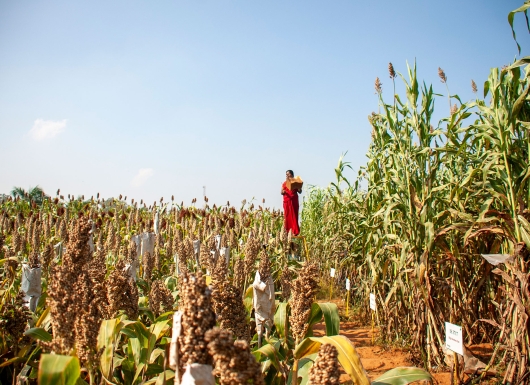Submitter: (ICRISAT)
ICRISAT in partnership with NARS and private partners has developed sweet sorghum cultivars CSV 52 SS and CSV 58 SS. Denatured bioethanol is an efficient, renewable alternative to fossil fuels for cooking and transport, reducing indoor air pollution, greenhouse gas emissions, and deforestation. The grain starch and stem sugars in sweet sorghums ensure high yield in the bioethanol bioconversion process, 19-30% cheaper than the use of molasses, outperforming sugarcane and maize, and avoiding competition with food value chains. Sorghum requires just over a quarter of the water requirement of sugarcane. The proposed technology mitigates climate change impacts, empowers women, drives economic growth in a scalable way, and is backed by the growing global market demand projected to reach over USD 120 billion by 2032.

Bioethanol is a clean energy and hence contributes to climate change mitigation. The use of bioethanol as a household cooking fuel will greatly improve the livelihood and resilience of the targeted communities and will drastically reverse deforestation with significant environmental and biodiversity benefits. In addition, bioethanol offers the opportunity to build business models for household and commercial clean energy solutions. There are several bioethanol plants in the US and in Latin America.
According to Fortune Business Insights, the global bioethanol market size was valued at USD 75.96 billion in 2023. The market is projected to grow from USD 80.47 billion in 2024 to USD 121.93 billion by 2032, growing at a CAGR of 5.33% during the forecast period. North America dominated the global market with a share of 41.35% in 2023.
https://www.fortunebusinessinsights.com/industry-reports/bioethanol-market-101076
By integrating environmental restoration with economic empowerment, bioethanol advances inclusive, sustainable development pathways that deliver climate, biodiversity, and resilient livelihood co-benefits at scale. In addition to public institutions, international institutions, and non-governmental entities, it is important to get private business onboard in order to scale out this initiative.